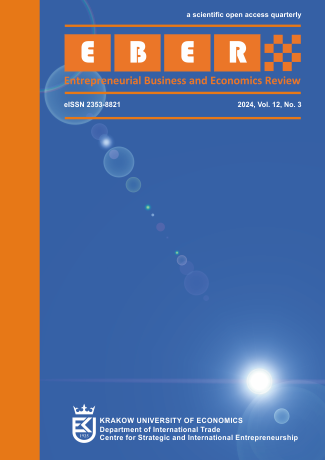The art of deception: The trade-off between the information
distortion and perception of FDI location attractiveness
The art of deception: The trade-off between the information
distortion and perception of FDI location attractiveness
Author(s): Katarzyna Mroczek-Dąbrowska, Dawid Cherubin, Aleksandra KaniaSubject(s): Supranational / Global Economy, Geopolitics
Published by: Uniwersytet Ekonomiczny w Krakowie
Keywords: information distortion; geopolitical factors; FDI location choice; FDI attractiveness perception; uncertainty; foreign direct investments;
Summary/Abstract: Objective: The objective of the article was to identify how various forms of information distortion influence foreign direct investment (FDI) location choices and location attractiveness perception. We focused on geopolitical factors that have been known to be an antecedent for FDI location choices but we identified new ways of impacting the perception of location’s attractiveness.Research Design & Methods: To this means, we applied the total interpretive structural modelling (TISM method) based on expert knowledge.Findings: Our findings illustrate how we cannot perceive FDI location decisions and the evaluation of their at- tractiveness as a simple, straightforward process. Based on the model, deep fakes are the most crucial geopolit- ical factors influencing the perception of FDI locations, followed by colour revolutions and false flag operations. Implications & Recommendations: Our model suggests that the factors influencing FDI location percep- tions create a dynamic, interconnected network of several interdependent layers that make FDI location selection challenging. The proposed TISM framework will support managers in formulating effective strat- egies for deciding on the next steps regarding their FDI location choices.Contribution & Value Added: In previous studies, scholars mostly assessed geopolitical factors through the lens of the classical approach to geopolitics, i.e. the overall perception of geopolitical risk. Nevertheless, recent geopolitical disruptions (e.g. tensions between China and the US, Russian invasion in Ukraine) as well as technological advancements have uncovered new ways in which geopolitics can affect international relations, including trade and investments.
Journal: Entrepreneurial Business and Economics Review
- Issue Year: 12/2024
- Issue No: 3
- Page Range: 205-220
- Page Count: 16
- Language: English

